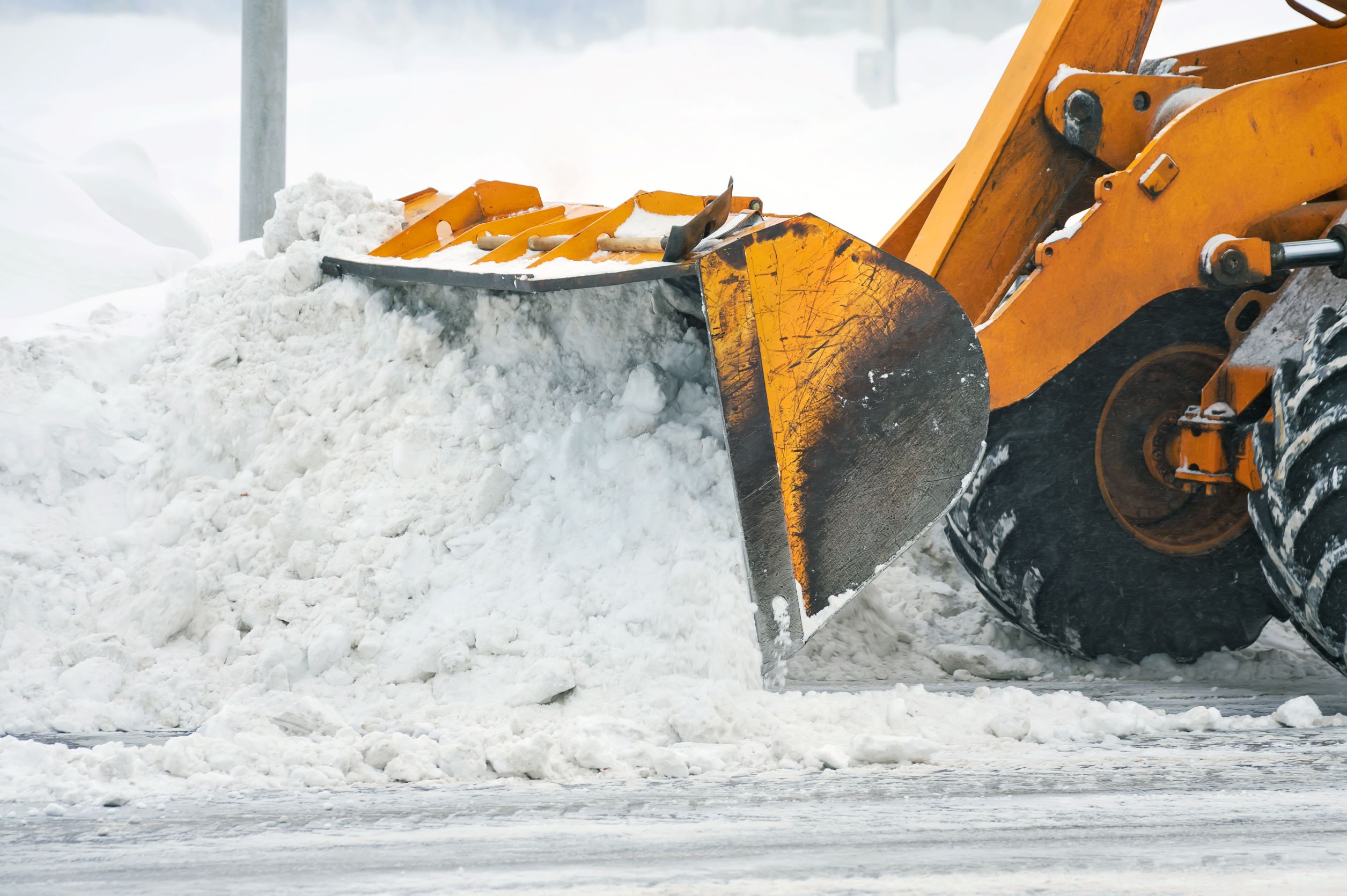It’s no secret that winter weather can wreak havoc on construction projects. Snow, ice, and extreme cold can make it hard to get the job done. From frozen pipes and ice-covered equipment to dangerous wind chills and heavy snowfall, winter weather can put a construction project behind schedule and over budget.
In many places, winter weather can also make construction work difficult and dangerous. But with proper preparation and safety precautions, you can do it safely and survive winter weather construction.
This article will discuss how to survive winter weather construction delays and still come in on time and under budget.
Tips To Help You Get Through The Winter Construction Season
Despite the challenges construction crews face during winter weather, they can still get the job done – they only need to take extra precautions and have the right equipment. For example, you’ll need a snowblower to help remove the snow during construction. You may also need other items and equipment, such as those sold by Hardline Equipment or other equipment providers. The trick, however, is to buy the equipment from reliable sellers to ensure it is of good quality and reliable for long periods of use.
Here are some tips for surviving the winter construction season:
1. Invest In Winter-Proofing Your Equipment
One of the best ways to survive winter weather construction delays is to winter-proof your equipment. It means taking the time to properly maintain your equipment and make any necessary repairs before the winter weather hits.
Investing in winter-specific equipment, such as snow clearing machines, plows, and de-icing equipment, is also a good idea. It will ensure that you can keep your work site clear and operational, even during a winter storm. Also, ensure that before the work day begins, you take some time to prepare your equipment and materials. Make sure that everything you need is easily accessible and that you have a plan for how you will get the job done.
2. Create A Winter Weather Construction Plan
Before the winter season begins, sit down with your construction team and create a winter weather construction plan. This plan should detail how you will continue working through the winter months, including dealing with bad weather days. If possible, try to schedule some of the work indoors, where it is warmer.
For example, if you’re relying on specific equipment to complete your project, be sure to have a backup in case the equipment fails, such as by renting additional equipment. Alternatively, if you’re expecting a delivery of materials, add extra time to the construction schedule to accommodate the delay or have an alternate supplier lined up.
3. Stay Updated On The Weather Forecast
To properly plan for winter weather, you must stay up-to-date on the latest forecast. It means checking the weather forecast regularly and being ready to adjust your construction plans accordingly. For instance, if the forecast calls for snow or ice, take steps to prevent your equipment and materials from getting covered. If possible, move them inside or under a shelter. Also, consider investing in a weather monitoring system for your worksite. This way, you can be alerted as soon as severe weather comes your way, giving you time to take the necessary precautions.
4. Be Prepared For Power Outages
Construction crews may also face power outages that can last for days or weeks. While power outages are always possible during winter storms, they can be especially problematic for construction crews that rely on electricity to power tools and equipment. A prolonged power outage can delay a construction project by days or even weeks, so it’s important for crews to be prepared.
To prepare for power outages, invest in a generator. A generator can be a lifesaver during a power outage. It can provide the electricity needed to power tools and equipment and keep the crew warm and comfortable. Construction crews should always prioritize their safety.
In a power outage, crews should be aware of the dangers of carbon monoxide poisoning and stay away from generators and other heat sources. They also need to be extra cautious when working around power lines. Snow and ice can make them harder to see, and they can be very dangerous.
5. Dress For The Weather
When working in winter weather, it’s essential to dress for the occasion. First and foremost, it’s important to layer your clothing. You may be working outside in the cold weather, so it’s best to dress in several layers to stay warm. Dressing in layers is one of the best ways to remain warm in cold weather.
Wearing the innermost layer of long underwear made of a material like wool or synthetic fabric will help to keep your body temperature regulated. Add a middle layer of insulation, such as a fleece sweater, and finish it with a windproof and waterproof outer layer. Make sure your head and extremities are well-insulated; wear a hat, scarf, and gloves. In addition, be sure to provide your workers with the necessary safety gear, such as hard hats, gloves, and goggles.
6. Beware Of Frostbite And Hypothermia

In extremely cold weather conditions, it’s best to know the dangers of frostbite and hypothermia. Frostbite occurs when the skin and tissue freeze, which can quickly happen in cold weather. Symptoms of frostbite include numbness, pale skin, and a burning sensation. Hypothermia occurs when the body’s core temperature drops below 95 degrees Fahrenheit. Symptoms of hypothermia include shivering, confusion, and slurred speech.
If you start to feel numbness or tingling in your extremities, or if you begin to feel dizzy or lightheaded, get inside and warm up immediately. If someone you’re working with has these symptoms, call 911 and get them to a warm location immediately.
7. Take Breaks
If you start to feel cold, take a break to warm up. Go inside a building or get in your car and turn on the heater for a few minutes. You can also take frequent breaks to warm up your body. Take a break indoors, where it’s warm. If not, take a break in your vehicle or a heated construction trailer. Drink warm beverages and eat warm food to help raise your body temperature.
8. Know When To Call It Quits
No matter how well you plan, there will be times when the winter weather throws a curveball your way and the weather is too dangerous to work in. When this happens, it’s best to know when to call it quits and send your workers home for the day. Before the winter season begins, establish a set of weather conditions that will prompt you to shut down operations for the day. It may include high winds, low temperatures, or heavy snowfall. By doing so, you can help ensure the safety of your workers and avoid costly accidents.
9. Stay Flexible
Finally, the best way to survive winter weather construction delays is to stay flexible. It means being willing to adjust your plans and make changes on the fly. For example, if a winter storm is forecasted to hit your area, be prepared to adjust your construction schedule accordingly. Alternatively, if you’re facing a delay due to bad weather, be willing to adjust your budget and timeline to accommodate the delay.
10. Use The Buddy System
If you’re working in cold weather, try to work in pairs so that someone can keep an eye on you and your surroundings. This way, if one person starts to experience symptoms of hypothermia, the other can get help.
Summary
The winter weather can be tough on construction projects. Cold temperatures can make it hard to pour concrete and asphalt, and snow and ice can make it hard to get around the job site. That is why construction crews must prepare carefully and take extra safety precautions to work safely in winter weather. Some precautions include planning, preparing equipment, dressing for the weather, and taking breaks. By following these tips, your construction crews can safely work in winter weather without too much trouble and be productive all season long.


